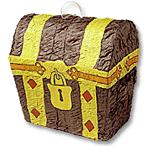Finders Keepers?
[Author – Tim ODwyer]

In the real world people sometimes do discover long-forgotten money or valuable objects. Often lawyers then become involved to help determine who gets to keep this“buried treasure” because, unfortunately, the legal position is rarely so simple as “finders keepers…”.
Some time ago in Queensland a law journal published a scholarly paper entitled “DOES THE REIQ CONTRACT EFFECT A TRANSFER OF TITLES OF BURIED CHATTELS AND BURIED TREASURE?” Don’t laugh. This was a serious academic study. It nevertheless began by stating the obvious: that since 1982 the standard contract had contained a provision that anything left behind after a sale was “deemed abandoned” and could be claimed by the new owner.
Most property buyers in my experience discover that nothing much of real value is ever “abandoned”. A rural property seller once inadvertently left behind a heap of hay worth $20,000.00. The new owner later refused to return it. The matter went to court. The buyer relied on the standard contract clause and the seller lost not only the case but also his hay.
The same harsh result can still occur under the REIQ’s current contract. “Chattels on the land” are “considered” abandoned if they are not removed before settlement. Readers outside Queensland may care to check yourselves whether your local standard contracts contain similar “sellers weepers” provisions.
But what if a property owner finds goods or money buried or hidden somewhere “in the land”? No matter whether a sale has just taken place or happened years earlier, the “on the land” contract clause will not apply. When the find is not “on the land”, more complicated law applies.
The basic legal rule (since 1722 when an English court considered a chimney-sweep’s finding of a precious jewel) is that any finder’s claim will be good against all except the true owner. However, find something as a worker on the property, and your boss may be next in line after the owner.
Because the real owner of long-lost goods or money can rarely be identified, another exception to the basic rule is that the property owner or occupier generally has a better claim than any fortuitous finder or his employer. In one court case money found by a building-worker in a forgotten wall safe eventually went to the owner of the premises.
If you are a tenant and make a valuable find, your landlord will most likely wind up the winner.
If you find buried treasure trove, that is gold or silver objects such as coins, you will mostly miss out on keeping the loot. No matter who finds treasure trove, or where it’s found, there is an automatic vesting of possession and ownership not in owner, tenant or finder – but in the Crown (i.e. the government). After two tenants of rural land in Victoria turned up old gold sovereigns while digging post-holes, they sold some of the coins. Because the pair had found treasure trove which legally belonged to the Crown they were later actually charged with stealing the coins they had sold.
A university property law lecturer has told ABC Radio that treasure trove finders do sometimes end up keeping their booty:
“The Crown usually rewards honest finders, and it may do so by giving them the value of the coins, or if it’s got a lot of these coins, it may not need them and just return them.”
Incidentally when police find valuables in the course of their employment or during a raid neither the police service nor the officers involved are likely to keep the find. When police raided the home of the mother of a known criminal and uncovered a suitcase of likely ill-gotten cash, a Court later ruled that the crim’s mum was entitled to both suitcase and contents.
The learned barrister who wrote the Queensland law journal article concluded cautiously and again with the bleeding obvious:
“A situation where buried chattels are found long after the sale of the real estate does not occur frequently but when it does, the true owner and the finders may be put to considerable (legal) expense in determining the ownership of the chattels.”
So here is the best advice to any property-owner who might dream of unearthing lost treasure: don’t stop dreaming, but keep a watchful eye on your gardeners, building-workers, chimney-sweeps and the Crown, and check out whether your householders’ insurance will cover the legal costs likely to follow any lucky find – particularly if it doesn’t remain a secret.
By the way, courts over the years have determined many disputes between competing claimants to valuable finds.
Apart from containers of coins, bundles of banknotes and miscellaneous jewellery, the legally lost and found list includes:
- A prehistoric boat;
- National Savings Certificates;
- A gold ingot;
- A 2,000-year-old fossilised egg;
- Tallow;
- Shrouds;
- Wallets;
- Iron bars;
- Logs;
- Celtic brooches;
- Golf balls;
- A pointer dog.
In every case the real winners were, of course, the competing parties’ lawyers – whatever the courts’ findings!
To post your comment on this item, please return to


